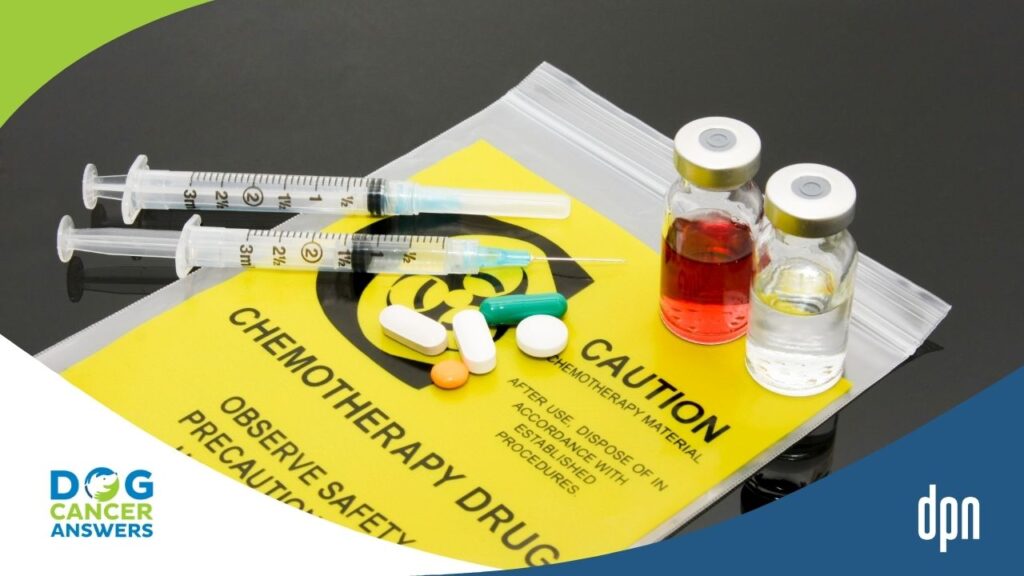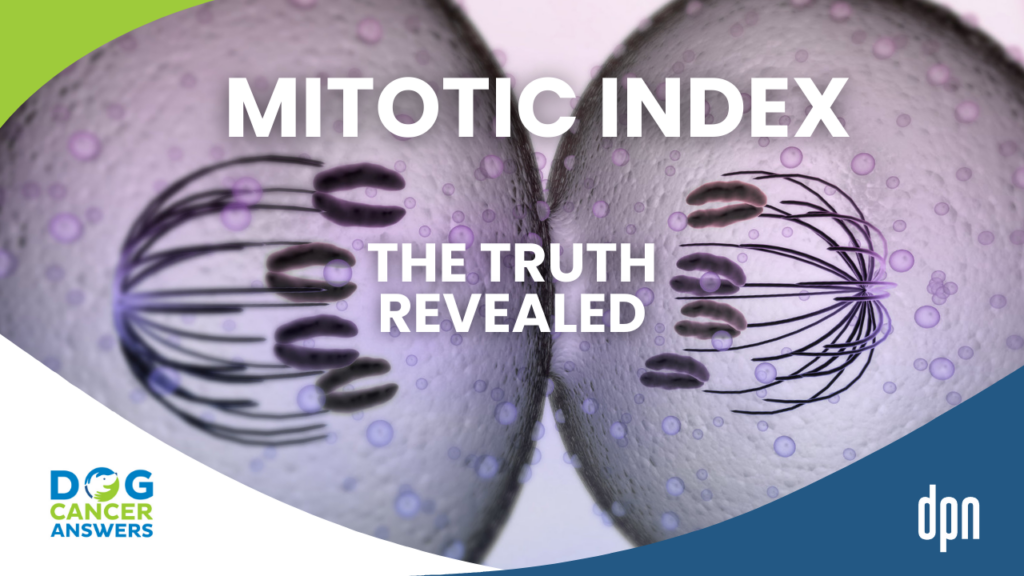>> Dr. Demian Dressler: The melanoma vaccine in general is very, very safe. So there’s some merit in using it as part of a full spectrum approach.
>> Announcer: Welcome to Dog Cancer Answers, where we help you help your dog with cancer. Here’s your host, James Jacobson.
>> James Jacobson: Thanks for joining us for today’s Question & Answer show. We have a caller named Maureen who asks about amelanotic melanomas and the vaccine Oncept. Let’s listen to her question, and then to Dr. Dressler’s answer.
>> Maureen: Hi, my name is Maureen and I’m calling from Mendocino, California. I’m calling about my nine-year-old German Shepherd, who was just diagnosed with amelanotic melanoma on his lip. He’s had one excision which was not clean, so he’s going back for a second excision. My question is, does anybody have any experience with this particular tumor? And also, a question about Oncept the vaccine, whether it’s ever been used for an amelanotic melanoma. I understand it’s more geared towards straight melanoma. Thank you very much.
>> Dr. Demian Dressler: Good question, Maureen. So the first question: Has anyone had experienced this type of cancer? Yes, I have. The second question is the Oncept vaccine. So I’ve dealt with a few of these over the years, and I spoke to Phil Bergman, who developed the vaccine concerning this exact question.
So his response was, yes, there’s still merit in using the vaccine. And the reason why is because the amelanotic melanomas just don’t have melanin in them, but they’re really similar still to melanomas. Melanin is the pigmented thing. And for those who don’t know, amelanotic means they’re white-colored melanomas. Melanomas are usually not white colored, they’re usually brown or black.
They’re still derived from the same types of cells and they’re still cancerous and they still behave in many of the similar ways that a standard melanoma does. And one of the ways is that a lot of them want a surface of their cells have tyrosine or tyrosinase. And that’s exactly what the vaccine is stimulating the immune system to attack.
And so a good chunk of them do, and the melanoma vaccine in general is very, very safe. So there’s some merit in using it as part of a full spectrum approach, which would be the second surgery. Great job. Get those cancer cells out of there. The diet. Dietary apoptogens to help stimulate cancer cell suicide, which is why I developed Apocaps, immune support and all of the other aspects that are discussed in the book that are part of full spectrum care.
So I hope that helps.
>> James Jacobson: Really great question, Maureen, and Dr. Dressler, thank you for answering it.
So it turns out that even though amelanotic melanoma is white, it’s still melanoma. The lack of pigment does not change the tumor type so much that the vaccine doesn’t help. The melanoma vaccine may in fact help all melanomas.
This episode was a good reminder about an important understanding for dog cancer: while different cancers may be in different places, or have different shapes, or colors, or affect different systems in the body, they ALL share certain fundamental characteristics. The point of Dr. Dressler’s approach is to address those things that are consistent from cancer to cancer. For example, cancers tend to prefer carbohydates as a food source, or they stop apoptosis, or they suppress the immune system. So addressing those commonalities are important for every type of cancer, no matter where it is in the body. That’s why there are so many different things to do in full spectrum cancer care. You’re trying to address all the hallmarks of cancer, since we don’t have the single magic bullet for any cancer, as of yet, if we ever do.
If you’d like to know more about amelanotic melanomas, Dr. Demian Dressler has some great articles on DogCancerBlog that might be helpful.
We’ve included links in the show notes, which you can find in your podcast app or on our website at DogCancerAnswers.com, where you can also listen to or download our back catalog. It is the best way to get the information you need to help optimize your dog’s life quality and longevity.
Just a couple things to wrap up today’s show: don’t forget to hit that subscribe button, and write a review, and tell a friend and tell your veterinarian about this show.
It’s how we grow and it’s the best way you can support us so we can support as many dog lovers as possible thru what can be a very difficult time.
<<TOUCH TONE SFX>>
Those touch tones are an invitation to you to call our Listener just Line like Maureen did. Call our Q&A line and leave your question about dog cancer for one of our veterinarians to answer on a future episode. The telephone number to do that: 808-868-3200 or visit our website at DogCancerAnswers.com.
And finally, we would like to thank our sponsor: The Dog Cancer Survival Guide book by Demian Dressler and Susan Ettinger. It is available wherever fine books are sold both online and in physical bookstores. And if you’d like to help support this show, get it right away direct from the publisher. You can get the paperback (with free shipping anywhere in the USA) or the ebook edition for just $9.95. To get either the ebook or the paperback go to this website: DogCancerBook.com. And because you are a listener to this show, if you use the promo code “podcast”, you can save 10%. The website again: DogCancerBook.com and use the promo code “podcast” for 10% off. That is www.DogCancerBook.com.
I’d like to thank Dr. Demian Dressler for being our guest today, and if you’d like to reach out to him, his website is Vet in Kihei.com that is K-I-H-E-I, Vet in Kihei dot com. Also, thanks to Maureen for her question.
Until next time, I am James Jacobson. From all of us here at Dog Cancer Answers and Dog Podcast Network, I wish you and your dog a warm Aloha.
>> Announcer: Thank you for listening to Dog Cancer Answers. If you’d like to connect, please visit our website at DogCancerAnswers.com or call our Listener Line at 808-868-3200.
>> Announcer: And here’s a friendly reminder that you probably already know: this pod-cast is provided for informational and educational purposes only. It’s not meant to take the place of the advice you receive from your dog’s veterinarian. Only veterinarians who examine your dog can give you veterinary advice or diagnose your dog’s medical condition. Your reliance on the information you hear on this podcast is solely at your own risk. If your dog has a specific health problem, contact your veterinarian.
Also, please keep in mind that veterinary information can change rapidly. Therefore, some information may be out of date.
Dog Cancer Answers is a presentation of Maui Media in association with Dog Podcast Network.









